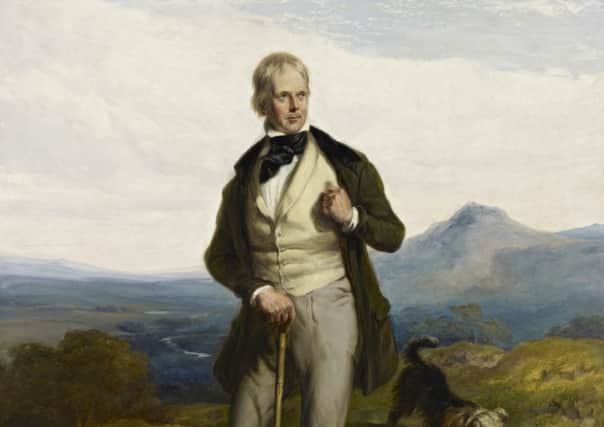Academic’s call to recognise Scott’s legacy


Professor Alison Lumsden, of the University of Aberdeen, said that criticism of Scott for the creation of a ‘shortbread tin lid’ perception of Scotland should be put aside and the complexity of his work recognised.
Academics from around the globe will be gathering in the city this week at a conference to discuss his legacy, the role he has had in shaping ideas of Scotland, and the ways in which his work is relevant today on an international stage.
Advertisement
Hide AdProfessor Lumsden, from the Walter Scott Research Centre at the University of Aberdeen, said: “At the time of the publication of Waverley in 1814 Scott was already a best-selling poet and the anonymous Waverley was soon to become a phenomenal success, with sales of the novel outstripping those of all others combined that year.
“But Scott has often been given a bad press for producing a redundant image of Scotland that is based on tartan, stags and romantic Highland scenery. This is far from the full picture and the more we read his work and talk about it to those outside Scotland the more we recognise its complexity.
‘cliched stereotypes of scotland’
“While some of the many adaptations of Scott offer such cliched stereotypes of Scotland, Scott writes fiction that confronts many of the issues that are relevant for Scotland today and offers surprisingly modern conclusions.”
Prof Lumsden has been part of a team, led by Professor David Hewitt, of the University of Aberdeen, which has spent almost three decades restoring Scott’s work to produce the Edinburgh Edition of the Waverley Novels.
She says this critical edition has identified and eliminated many of the errors made by printers - but frequently attributed to Scott himself - which she suggests may have arisen as they rushed to meet demand for his work and to decipher his famously ‘spidery’ writing.
She said: “As a result of the speed at which Scott’s novels were produced, the printers often mis-read words and got the punctuation very wrong.
Advertisement
Hide Ad“People used to say he was a sloppy writer but almost every example of poor writing we have come across in the novels involves errors in the production process.”
She added: “It is time to put an end to the common belief that Scott was sloppy and slapdash as many of these errors are now recognised as resulting from the printing process.”
To re-examine his output and the legacies he left
Advertisement
Hide AdTo mark the bicentenary of Waverley, Prof Lumsden will welcome delegates from around the world to the University’s Sir Duncan Rice Library, which houses one of the best collections of print materials related to Scott anywhere in the world.
They will use the collection, which contains not only all of Scott’s works but comic books, chapbooks, dramas and other items derived from Scott, to re-examine his output and the legacies he has left to modern Scotland.
Items from the collections, including rare first editions of Waverley in its original boards, a children’s illustrated edition, and a Swedish edition will be on public display in the foyer area of the library from July 8 to 11.
The conference will also feature a performance of pieces based on Scott’s most popular works by Scottish Opera on Thursday July 10 at 7.30pm in St Machar’s Cathedral, Aberdeen.
The Tenth International Scott Conference runs from July 8-12.
SEE ALSO: